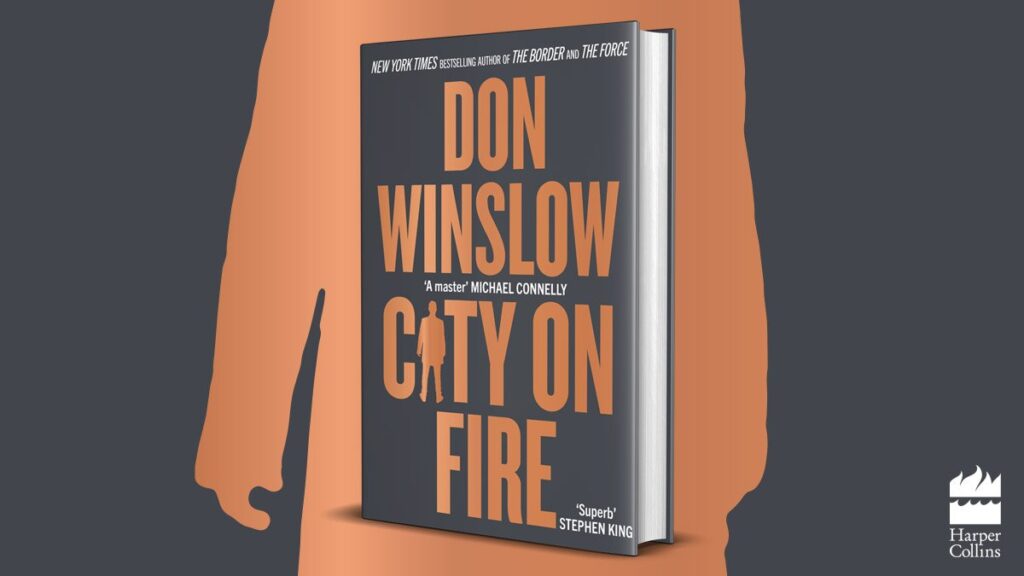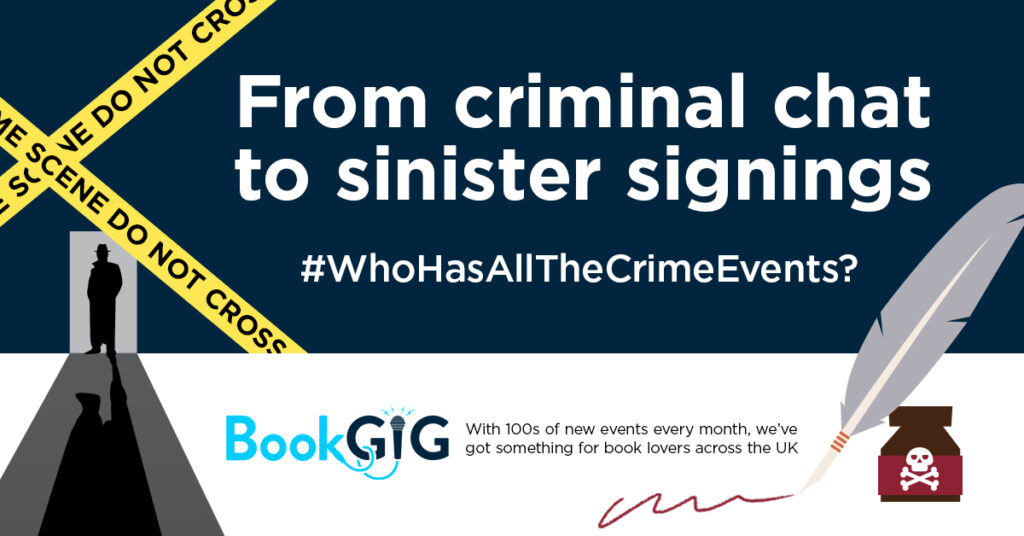 Daniel Blake certainly thought so! Read his article on why he chose to use a natural disaster as the setting for his latest novel, City of Sins.
Daniel Blake certainly thought so! Read his article on why he chose to use a natural disaster as the setting for his latest novel, City of Sins.
The moment I first saw footage of Hurricane Katrina devastating New Orleans, I knew I wanted to use the tragedy as the setting for a thriller. If that sounds like exploitation or some literary version of disaster tourism, it’s not supposed to. It’s simply that crime fiction, by its nature, deals with tragedy more often than it does with triumph – and tragedies don’t get much more resonant than the destruction of a great city.
In the case of New Orleans, that resonance was particularly poignant. Even those who’ve never been there feel they have an emotional connection to the place. Think of New Orleans, and you think of many things. You think of partying – Mardi Gras, the French Quarter, the Big Easy. You think of the music – jazz, blues, Zydeco. You think of the writers – Tennessee Williams, Truman Capote, Anne Rice. You think of food and drink – gumbo, beignets, daiquiris.
If you’re a strict Christian, you might think of the city as a repository of sin – the Southern Decadence gay festival, the sex shows of Bourbon Street, the shadowy mysteries of voodoo. And whatever your faith, you’d have to admit New Orleans has a darker side, and in spades. One of the highest murder rates in America, a Third World public infrastructure, and levels of official corruption and political intrigue which would have made the Borgias green with envy.
In short, New Orleans is humanity writ large: our excesses, our triumphs, our follies.
Which, of course, makes it a great place to set a thriller.
Six years on, the shadow of Katrina still hangs over the city. In the Lower Ninth Ward, which saw some of the worst flooding, the programme of rebuilding continues. Take a bus from the French Quarter up to Lake Pontchartrain, and you can see the dirty tidemarks on walls: four, six, eight feet high. Talk to the locals, and every one of them’s got a Katrina story. The woman who cut my hair was evacuated to Baton Rouge and housed with zealots who told her that Katrina was God’s cleansing of a cesspool. The man collecting for an air force charity said Prince Charles had rung him to commiserate. Amazingly, this wasn’t the tallest story I heard during my time there.
City of Sins began in my head as a simple serial killer tale: but as I researched wider and deeper, I began to see how much Katrina had been a man-made disaster. By ‘man-made’, I don’t just mean the relationship between climate change and hurricane occurrence. I mean a direct correlation between the extent of the catastrophe and man’s action (or inaction) in New Orleans.
Thousands of acres of wetlands, which would otherwise have dramatically slowed Katrina’s path before it reached the city, had been destroyed by the oil and gas industries. The Mississippi River Gulf Outlet channel could hardly have funnelled the storm surge better if it had been specifically designed to do so. The canal walls had given way because they were badly constructed and poorly maintained. It makes me angry just writing about it. It sure as hell makes the people of New Orleans angry.
Given all these, it’s a short step to imagining something more sinister, more calculated. Without revealing too many details, it’s this layer which I think provides much of the book’s emotional heft. What shocked me was how many people seemed to agree with the conceit at the heart of City of Sins. In New Orleans, conspiracies aren’t just the province of wack-jobs and internet loners. In New Orleans, conspiracies have history, proven and documented. For 2005, read 1927. You can look the rest up.
I said earlier that crime novelists deal more in tragedy than in triumph, but that doesn’t rule out the latter altogether. Crime carries the prospect of retribution, but also of redemption. Franco Patrese, the FBI agent who’s the hero of City of Sins, is a huge American football fan. One of the most enduring images of Katrina was that of thousands of people huddled inside the Superdome, home stadium of the city’s football team, the New Orleans Saints. The roof half-torn off, no sanitation, precious little food and water, lurid tales of rape and murder: for a few days, the Superdome seemed like something out of Dante or Bosch.
The Saints had long been pretty hopeless: many fans referred to them with exasperated affection as the New Orleans Ain’ts. In the season after Katrina, when the Superdome was being rebuilt, the team wanted to sign a quietly-spoken, modest quarterback named Drew Brees. Brees had received a competing offer from the Miami Dolphins. Most people in his position would have taken the Miami glamour and glitz in a heartbeat. Not Brees.
‘I tried to look a lot deeper than just on the surface,’ he said. ‘You’re looking around at a lot of the neighbourhoods, and there are still boats in living rooms and trucks flipped upside down on top of houses. For me, I looked at that as an opportunity. An opportunity to be part of the rebuilding process. How many people get the chance to be a part of something like that?’
Brees was offered several houses in upscale suburban gated communities. He turned them all down, and instead bought a hurricane-damaged townhouse which needed $50,000 worth of repairs. For his first few months in New Orleans, he knew his builders better than he did his team-mates. But the message was clear: they were in it together. The rebuilding of the city, the stadium, the team: they were all the same thing.
Just over a year after Katrina, the Saints played their first game back in the Superdome. The place was a sell-out: the TV audience broke all records. And when Curtis Deloatch opened the scoring for the home side, it seemed for a moment that the roar might rip the stadium roof clean off once more.
But that was just the start. For last year, Brees led the Saints – the hopeless, hapless, downtrodden Ain’ts – to their first SuperBowl, a victory of heartshaking emotion which he immediately dedicated to the people of New Orleans. A special player, a special man, a special trophy, a special city. The rebuilding hasn’t yet come full circle. Perhaps it never will. But that night, it sure felt like it had.


